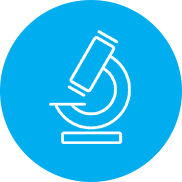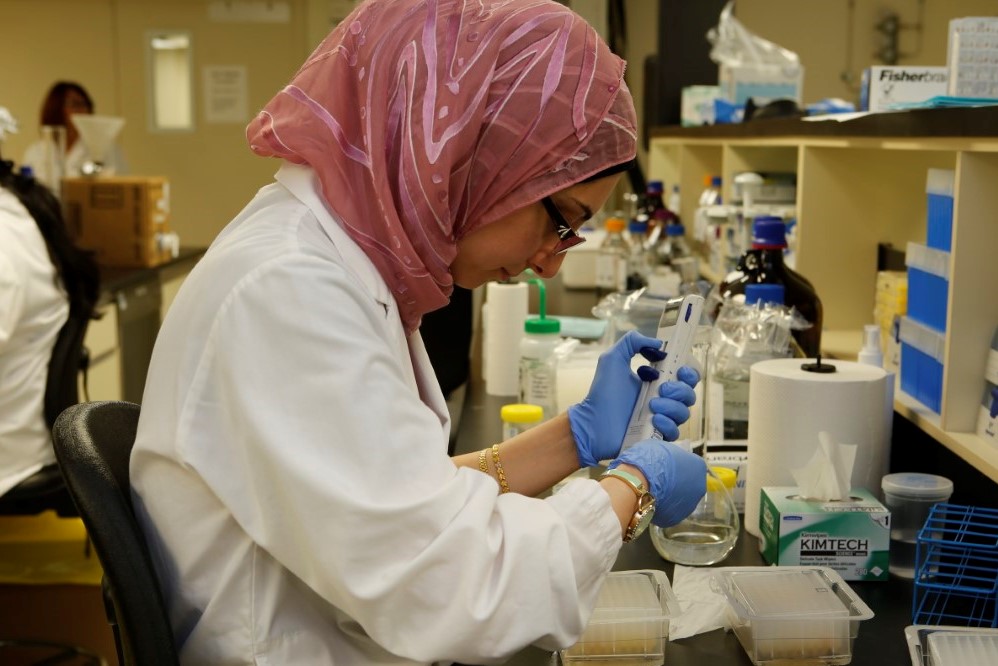Bioanalysis & Bioanalytical Services
State-of-the-Art Bioanalytical Services
The development of high-quality and cost-effective solutions for bioanalysis is critical for the success of drug development programs. Moreover, with the rapid progress of pharmaceutical research, the requirements regarding the sensitivity, speed, accuracy, and cost efficiency of bioanalytical techniques are increasing. BioPharma Services Inc.’s expert bioanalytical team and in-house laboratory offer our clients a comprehensive range of state-of-the-art bioanalytical services. The scope of our services includes:
- Method feasibility studies
- Method development (GLP and non-GLP) and validation
- Method transfer
- Bioanalysis of biological samples from bioequivalence/bioavailability and clinical pharmacokinetic studies
- Bioanalysis to support nonclinical toxicokinetic studies in all animal matrices
Innovative, Robust, and Reliable Bioanalysis & Bioanalytical Solutions
Our expert bioanalytical team develops novel techniques for the bioanalysis of drug products, including combination analysis of multiple compounds into a single assay or utilization of a double extraction method. The bioanalytical testing methods established by our team are robust, reproducible, and yield consistent and accurate results.
Expert Bioanalytical Team
Our bioanalytical services are provided by BioPharma’s bioanalytical team, which includes accomplished pharmacologists and bioanalytical scientists who rely on innovative strategies to meet the complex drug development needs of our clients. The team is led by Dr. Nicki Hughes, a veteran with 20-year experience in bioanalytical research. Dr. Hughes oversees the R&D, validation, and production groups and sets higher-than-industry standards to ensure smooth laboratory operations.
Under her leadership, the bioanalytical team has achieved over 98% passing batch rate of our studies. Moreover, the team continuously develops novel LC-MS/MS-based assays to support nonclinical and clinical trials, including studies with atypical routes for drug administration and sample collection. In addition to their professional accomplishments, BioPharma’s bioanalytical scientists distinguish themselves by their enthusiasm and commitment to the highest study quality.

Recognized Worldwide Expert Regulatory Support
BioPharma has undergone successful regulatory inspections across global markets and can provide reliable, reputable data to support drug submissions for market authorization to multiple agencies. Thus, our bioanalytical team has extensive experience in the analysis of clinical trial samples to support First-to-File Abbreviated New Drug Application (ANDA) submissions to the U.S. Food and Drug Administration (FDA).
BioPharma Services can reliably and cost-efficiently analyze clinical trial samples to support our clients’ submissions to the FDA, Health Canada, European Medicines Agency (EMA), UK Medicines and Healthcare products Regulatory Agency (MHRA), Brazilian National Health Surveillance Agency (ANVISA), World Health Organization, French National Agency for the Safety of Medicines and Health Products (ANSM), Danish Medicines Agency (DKMA), and Standards Council of Canada.
US FDA
Health Canada
EMA
UK MHRA
ANVISA
World Health Organization
French – ANSM , Danish – DKMA
Standards Council of Canada

In-house Bioanalytical Laboratory
The development of novel drugs with high potency has driven the need for ultrasensitive techniques to detect low drug concentrations in biological samples. BioPharma’s in-house bioanalytical laboratory team utilizes a state-of-the-art liquid chromatography with a tandem mass spectrometry (LC/MS/MS) platform to perform highly sensitive and accurate analyses in a variety of matrices.
Client-centered Approach to Bioanalysis with Expedited Turnaround Times
Our team focuses on the specific needs of our clients’ drug development programs to develop a comprehensive and efficient strategy for bioanalysis. Our target turn-around time for bioanalysis is merely 48 hours, and our talented bioanalytical team works tirelessly to support our clients’ endeavors in an increasingly competitive marketplace.
As drug potency also increases, driving the need for sensitive methodologies to detect even lower concentrations of drug in biological samples becomes more and more important. BioPharma Services, as a bioanalytical services and CRO company, utilizes state-of-the-art LC/MS/MS platforms to meet this need. The scope of bioanalysis and bioanalytical services offered at BioPharma include:
- Method feasibility
- Method development (GLP and non-GLP) and validation
- Method transfers
- Bioanalysis of biological samples from BE/BA studies and clinical PK studies
- Bioanalysis to support nonclinical toxicokinetic studies in all animal matrices
Schedule a Discovery Call
You can unsubscribe at any time. For more details, please read our Privacy Policy.
Bioanalysis FAQ
-
What does Bioanalysis mean?
Bioanalysis is a sub-discipline of analytical chemistry focused on identification and quantification of a substance of interest (usually xenobiotics or biotics) in a biological matrix (blood, plasma, serum, urine, tissue extracts etc.)
Xenobiotics are molecules found in an organism that are not endogenous to the host, or a naturally occurring molecule that is present in much higher concentrations than would be expected. These can include drugs and their metabolites carcinogens, environmental pollutants, food additives.
Biotics are molecules produced by and found naturally in an organism. These can include small molecules, large molecules, oligonucleotides, DNA, proteins etc.
For bioanalytical analysis, the key step is sample preparation and analysis. Sample preparation is a technique used to clean up and concentrate a sample to improve its detection. For the bioanalytical assays, there are a few different sample extraction technique such as: protein precipitation, supported liquid extraction (SLE) and solid-phase extraction (SPE).
-
Why is Bioanalysis important?
Bioanalysis is important because the measurement of drug concentrations in biological matrices is a crucial aspect of medicinal product development. Such data may be required to support applications for new actives substances and generics, as well as variations to authorized drug products. The results of animal toxicokinetic studies and of clinical trials, including bioequivalence studies, are used to make critical decisions supporting the safety and efficacy of a medicinal drug substance or product.
Bioanalysis is part of the new drug therapies development, providing the future treatments to patients worldwide. It is important in all the stages of the drug development to support drug approval applications to meet certain regulatory standards and requirements.
-
What are the Requirements for Bioanalysis?
The growing field of Bioanalysis involves the complex establishment of regulatory procedures and educated, trained staff. It requires highly sensitive instrumentation and validated, robust bioanalytical methods. Automation and laboratory robots are also entering the field to bring high quality and cost-effective solutions to bioanalysis. Advanced software programs are key to operation of instrumentation and compliance.
The main requirements are:
- Authenticated source for Biological Matrix
- Reference or working Standards
- Solvents and Chemicals
- Chromatographic Devices- Instruments, Columns
- Well-trained Manpower
- Literature
-
How do you create a Bioanalytical Method?
Bioanalytical Method Development is a process involving the sample preparation section (isolating the analyte of interest from matrix) and finding the parameters to detect it. The main purpose of bioanalytical method development is to clearly define the design, operating conditions, limitations and suitability of the method for its intended purpose. Before starting development of bioanalytical method, bioanalytical scientist should perform the detail study of analyte including physicochemical properties, in vitro and in vivo metabolism and protein binding etc.
-
Where does Bioanalysis fit into the Drug Research & Development pipeline?
Bioanalysis is an integral part of various stages of drugs and biotherapeutics R&D, from discovery through to development. In the early drug discovery phase, the role of bioanalysis can involve the development of a high throughput screening assay that can rapidly, reliably and accurately measure a parameter that can indicate a lead molecule.
After early drug discovery phases, the drug moves into preclinical development where robust and reliable bioanalytical research must evaluate the drug candidate’s pharmacokinetic (PK), toxicokinetic (TK) and pharmacodynamic (PD) properties. If the drug candidate reaches the clinical stage of drug development, bioanalysis remains an integral component of the research, with robust assays required to analyze human samples (e.g. plasma, serum or urine matrix).

